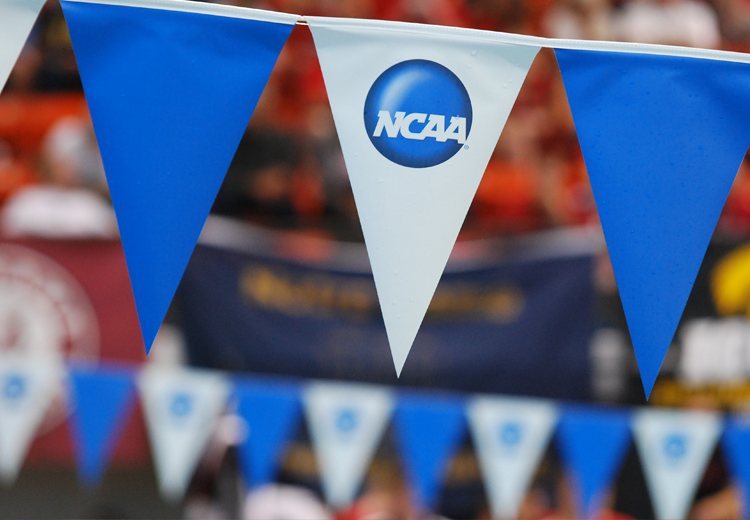Documents obtained by Yahoo Sports show that the NCAA is considering several new rules on amateur status and redshirting.
Prize Money Beyond Necessary Expenses
One of the potential rules, which Yahoo Sports says are to be discussed on a rolling basis throughout the next year, would allow athletes to collect all prize money earned while remaining eligible for NCAA competition. Current framework typically allows athletes to only accept money for necessary expenses, such as travel, meals, and lodging.
If implemented, high school and NCAA swimmers could accept all the prize money earned at meets such as Pro Series, FINA World Cup, or Mare Nostrum Swim Tour without jeopardizing their NCAA eligibility.
The notable exception to this long-standing prize money restriction has been money from National Olympic Committees. In 2001, Team USA launched “Operation Gold Program,” which became a loophole in funneling prize money through the Olympic Committee to Team USA amateurs without losing the athlete’s NCAA eligibility. Other countries’ Olympic committees have similar programs for prize money that are also allowed under the rules. The new prize money policy would bring consistency to all countries and circumstances, though it would further blur the line between professional and amateur sport.
Redshirting
In addition to prize money, the NCAA is also considering allowing athletes to redshirt a year even after participating in a certain percentage of the year’s competitions. Football and wrestling already have these rules in place. Swimming does not with the exception of an injury or illness hardship waiver. A swimmer can currently apply to redshirt a season after competition begins if 1) the injury or illness happened in the first half of the season; 2) a physician deems the injury or illness season-ending; and 3) the swimmer has not competed in more than 30% of the season’s competitions.
If this new rule passes, swimmers could redshirt after competing even without a “season-ending” injury or illness. Each sport would decide for itself what percentage of competitions an athlete could participate in and still be eligible to redshirt. The example provided in the NCAA documents was 30%. Swimmers may use this rule to redshirt following an injury or illness that isn’t deemed season-ending but still has a significant impact on their training and performance.
Injuries and illnesses aside, some NCAA swimmers with Olympic goals redshirt the year leading up to the Games. Notable swimmers who did so in the 2023-24 season include Torri Huske and Claire Curzan. For swimmers considering a redshirt year, the new rules could allow them to participate in the beginning of the NCAA season and buy them more time to make the decision.
National Letter Of Intent
The NCAA documents also discussed the potential to eliminate the National Letter of Intent. Currently, incoming NCAA Division I and II student-athletes sign the National Letter of Intent to mutually bind themselves and the program they intend to compete at in exchange for scholarship money. According to Yahoo Sports, a new signing model will retain the ‘core benefits’ of the National Letter of Intent but place them into the institution’s athletics and financial aid agreements.
The final rule change gives more leeway to use agents to pursue professional opportunities without jeopardizing their NCAA eligibility.
Yahoo Sports says that the documents proposing these rule changes will be reviewed by the Division I council this week.

Apart of all of this not mentioned is the idea of having a 5th year of eligibility for all athletes. https://www.si.com/college/gonzaga/basketball/ncaa-considering-5th-year-of-eligibility-for-all-sports-01j6wk4z9d43#:~:text=The%20NCAA%20is%20considering%20significant,of%20eligibility%20in%20all%20sports.
It’s about time! There is absolutely no way that taking prize money in this era of NIL should keep athletes from eligibility. The football players can be paid multimillion $ contracts. For most swimmers this is really the only way for them to profit on a similar way (albeit much smaller).